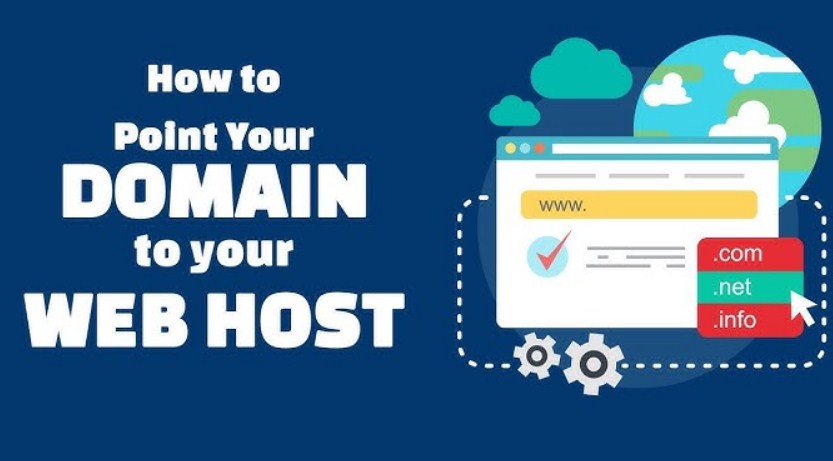Start a hosting company – Starting a hosting company in 2024 can be an incredibly profitable venture, especially as businesses and individuals alike continue to need reliable and affordable web hosting solutions. Whether you’re considering offering shared hosting, VPS (Virtual Private Servers), or dedicated hosting, there is a growing demand for quality hosting services.

In this guide, we’ll walk you through the steps to start your own hosting company, explore the benefits, highlight top products in the hosting industry, and provide detailed information on how to make your business successful.
What is a Hosting Company?
A hosting company provides the infrastructure and services needed to host websites on the internet. This includes servers, storage, and technical support, allowing businesses, organizations, and individuals to store their websites’ data and make them accessible on the web.
As the demand for online presence increases, hosting companies are essential for keeping websites running smoothly and securely.
Benefits of Starting a Hosting Company
Starting a hosting company can be incredibly lucrative if approached strategically. Here are a few key benefits:
1. Scalability
Once your hosting company is established, scaling becomes easier. Hosting plans can range from affordable shared hosting to more premium options like VPS and dedicated servers. As you gain more clients, you can gradually upgrade your infrastructure to accommodate more websites and services.
2. Recurring Revenue
Hosting is typically offered on a subscription basis, which means you can generate consistent, recurring revenue. Many hosting services operate on monthly or yearly contracts, ensuring a steady stream of income once your customer base is built.
3. Low Startup Costs
Compared to many other business models, the cost to start a hosting company is relatively low. Many hosting providers offer reseller hosting plans, which allow you to sell hosting under your own brand without needing to invest in physical servers. This makes it easier for new entrepreneurs to break into the industry.
4. Huge Market Demand
With the ever-growing number of websites, blogs, online stores, and businesses, the demand for hosting services is constantly increasing. Whether it’s for small blogs or enterprise-level websites, there’s always a need for reliable and affordable hosting services.
How to Start a Hosting Company: Step-by-Step Guide

Here are the critical steps to get your hosting company off the ground:
1. Choose Your Hosting Niche
There are various hosting options available, so the first step is to determine what type of hosting service you want to offer. This could be shared hosting, VPS, dedicated hosting, or even cloud hosting.
Niche options:
- Shared Hosting: Ideal for small websites or blogs.
- VPS Hosting: Suitable for businesses needing more control and resources.
- Dedicated Hosting: Best for larger businesses with heavy website traffic.
- Cloud Hosting: A scalable, flexible solution for growing websites.
2. Get the Right Hosting Infrastructure
If you’re planning to offer reseller hosting, you don’t need to buy expensive servers. But if you want to manage your own data centers, you’ll need to invest in powerful servers. Alternatively, you can partner with a data center provider for managed hosting.
3. Choose a Reliable Hosting Platform
You’ll need a platform to manage your customers and provide them with hosting. Some popular hosting management platforms are:
- cPanel
- Plesk
- WHM (Web Host Manager)
These platforms help you automate customer billing, create hosting packages, and provide support to your clients.
4. Set Up a Payment System
Once your hosting infrastructure is in place, set up a reliable payment gateway to handle subscriptions. Some popular options include PayPal, Stripe, and Authorize.net.
5. Promote Your Hosting Company
Marketing your hosting company is key to attracting customers. Use SEO strategies, paid ads, and social media to generate traffic. Offer discounts or free trials to encourage sign-ups.
Top 5 Products for Hosting Companies in 2024
Product 1: SiteGround Hosting
SiteGround is a reputable hosting provider known for its superior customer support and reliability. It offers shared, cloud, and dedicated hosting with excellent uptime and fast server speeds. SiteGround is particularly popular for small to medium-sized businesses.
Key Features:
- Free daily backup
- High-speed SSD storage
- Free CDN and SSL
- 24/7 customer support
| Feature | Details |
|---|---|
| Use Case | Shared, VPS, and Cloud hosting for all types of websites |
| Pros | Fast speeds, excellent support, 30-day money-back guarantee |
| Cons | Higher renewal rates, limited disk space for lower-tier plans |
| Price | Starts at $2.99/month for shared hosting |
| Best For | Beginners and small businesses |
Product 2: Bluehost Hosting
Bluehost is a leading hosting provider that offers a wide range of services, from shared hosting to managed WordPress hosting. It’s an ideal option for those just starting their online journey.
Key Features:
- Free domain for the first year
- 1-click WordPress installation
- 24/7 customer support
- Free CDN and SSL
| Feature | Details |
|---|---|
| Use Case | Ideal for WordPress hosting and small business sites |
| Pros | Easy to use, great for WordPress, reliable uptime |
| Cons | Prices increase upon renewal |
| Price | Starts at $2.95/month for shared hosting |
| Best For | WordPress users, beginners |
Product 3: HostGator Hosting
HostGator is an affordable hosting option with a range of services from shared hosting to VPS and dedicated hosting. It’s known for its flexibility and scalability.
Key Features:
- Free website builder
- Free domain for the first year
- Unlimited storage and bandwidth
- 45-day money-back guarantee
| Feature | Details |
|---|---|
| Use Case | Small to medium websites, entrepreneurs |
| Pros | Unlimited storage, flexible plans, good customer support |
| Cons | Slow customer support at times |
| Price | Starts at $2.75/month for shared hosting |
| Best For | Entrepreneurs, small businesses |
Product 4: A2 Hosting
A2 Hosting is well-known for its speed and performance. They offer shared, VPS, and dedicated hosting, making them a great choice for those who prioritize performance and uptime.
Key Features:
- Turbo Servers for faster speeds
- Free website migration
- 24/7/365 support
- Money-back guarantee
| Feature | Details |
|---|---|
| Use Case | Speed-focused businesses and developers |
| Pros | Fast speeds, great support, excellent uptime |
| Cons | Higher prices for premium plans |
| Price | Starts at $2.99/month for shared hosting |
| Best For | Speed-optimized websites |
Product 5: InMotion Hosting
InMotion Hosting provides high-quality hosting services with a focus on performance, scalability, and customer support. Their plans include shared, VPS, and dedicated hosting options.
Key Features:
- Free website migration
- Unlimited disk space and bandwidth
- 90-day money-back guarantee
- Advanced security features
| Feature | Details |
|---|---|
| Use Case | Ideal for eCommerce websites and large businesses |
| Pros | Excellent uptime, great support, easy scalability |
| Cons | Initial setup fee for certain plans |
| Price | Starts at $2.49/month for shared hosting |
| Best For | eCommerce websites, businesses |
How to Buy Hosting Products for Your Business
When purchasing hosting products, you need to consider the specific requirements of your business. For instance:
- Evaluate Your Needs: Do you need shared hosting, VPS, or dedicated servers?
- Check for Scalability: Can the product grow with your business?
- Look for Customer Support: Hosting services should offer 24/7 support to troubleshoot issues.
You can purchase these hosting services directly through the provided links for each product, which will redirect you to their respective websites.
Frequently Asked Questions (FAQ)
1. How much does it cost to start a hosting company?
Starting a hosting company can cost anywhere from a few hundred dollars (if using reseller hosting) to several thousand dollars (if purchasing your own servers and data centers). Monthly operating costs also include the purchase of hosting software, domain names, and marketing.
2. What’s the best hosting plan for beginners?
For beginners, shared hosting is the most affordable and easy-to-manage option. Most hosting companies offer low-cost shared hosting plans, which are perfect for launching websites without a significant investment.
3. How do I attract customers to my hosting business?
To attract customers, you can utilize SEO, offer free trials, run promotional campaigns, and provide excellent customer service. Word of mouth and positive reviews will also help attract clients.
4. Can I offer WordPress hosting with my hosting company?
Yes! WordPress hosting is a great niche to target. Most hosting companies offer specialized WordPress hosting plans, and you can add them to your offerings too.
5. What are the best hosting companies for eCommerce websites?
For eCommerce websites, hosting companies like InMotion Hosting, A2 Hosting, and SiteGround are excellent choices due to their speed, security features, and scalability.
Starting a hosting company can be a highly profitable and rewarding business. With the right approach, tools, and products, you can provide reliable hosting services that meet the needs of your customers and build a sustainable business model. Happy hosting!
Read More >>>
- How to Start a VPS Hosting Company in 2024: Complete Guide, Benefits & Best Products
- Best Dedicated Windows Hosting: Benefits, Products, and Buying Guide 2024